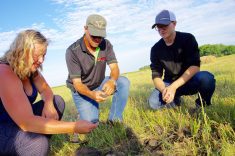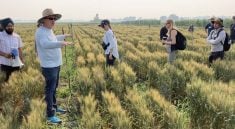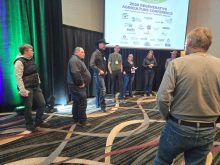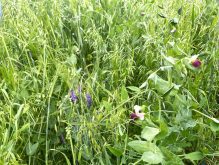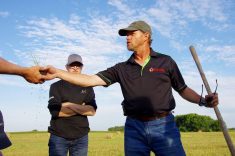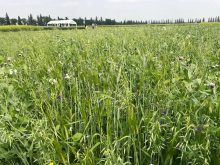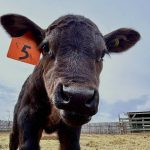A new cover crop mentorship program will provide the location-specific support that books and Google can’t, says one farmer.
“It was just another avenue to get in more knowledge and to be able to work with peers to see what’s worked and not worked for them for our specific geography,” said Kim Wilton, who farms near St. Eustache.
The Farm Resilience Mentorship Program (FaRM) cover crop stream kicked off in Manitoba on July 11 with a farm tour.
The free program is coordinated and funded by Farmers for Climate Solutions. It includes online tools and resources and access to a network of contacts including facilitators Klassen, Scott Beaton and other farmers.
Read Also
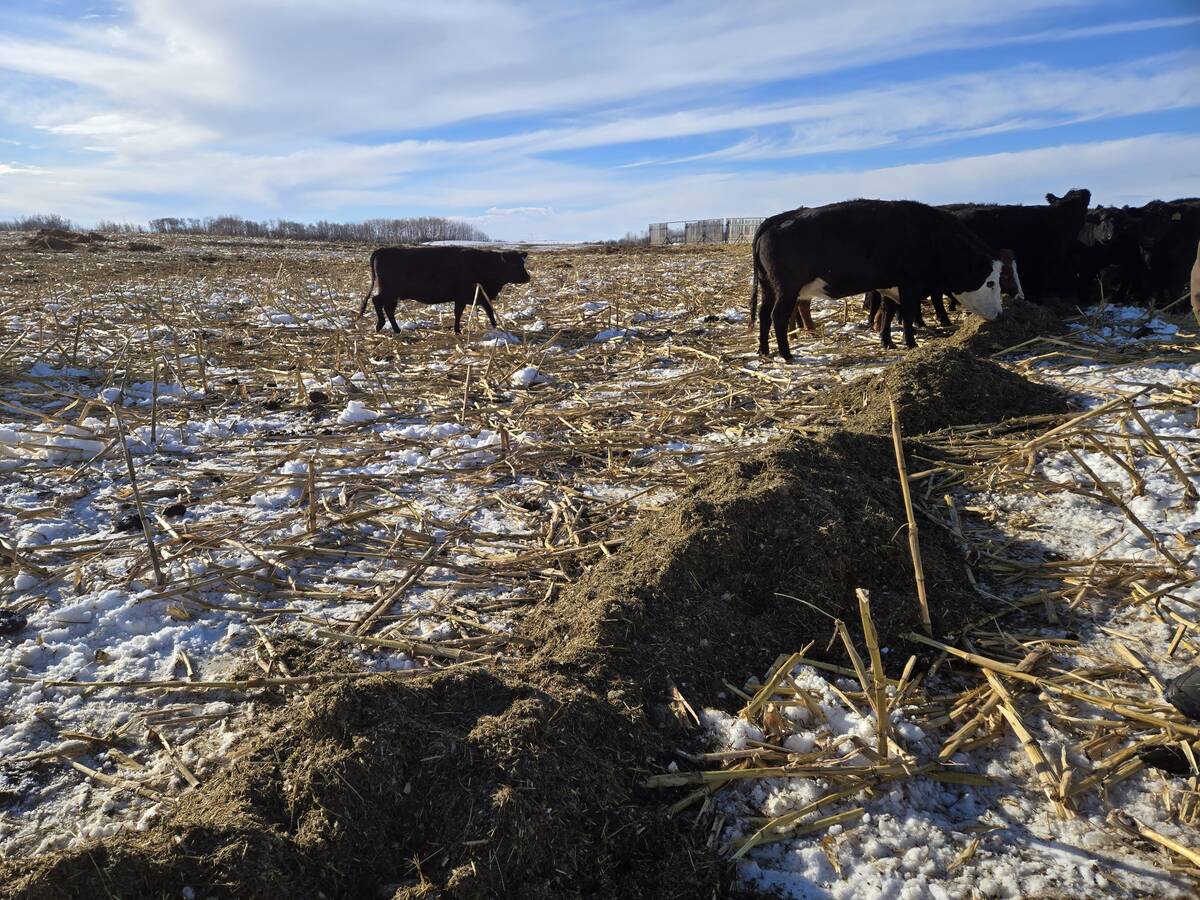
Winter grazing strategies offer cost relief for Manitoba cattle producer
How cover crops, straw and silage pile grazing fit in a western Manitoba rancher’s winter feeding plan — and how to make sure they meet cattle’s nutritional needs.
About 35 people, including ag company representatives, program members and curious farmers, assembled on co-facilitator Karen Klassen’s farm near Manitou. They heard talks from researchers Virginia Janzen and Ann Kirk and saw how Klassen was implementing cover crops and integrating livestock on her family’s farm.
They also asked questions of those in the group who were already cover-cropping, which was most of the farmers, Klassen said.
What are you seeding? When? At what rate? What does it cost? How are you terminating it? What’s the benefit of grazing cattle on the crop? How do you coordinate that?
Among the people who’d signed up by July 11, Klassen said she felt this is what they came for – community and the chance to bounce around ideas.
Watershed district reps promoted a recently rolled-out funding program for farmers who are considering cover crops.
Announced in late June, the Prairie Watersheds Climate Program is administered by the Manitoba Association of Watersheds (MAW) and funded through the federal On-Farm Climate Action Fund. It will pay farmers to implement cover crops, rotational grazing and nitrogen management.
The cover crop stream will pay eligible farmers $35 per acre to a maximum of $75,000 to plant cover crops, a program fact sheet said.
Klassen told the Co-operator that this would cover about half of her cover crop seed costs, not including labour and equipment.
Applications will open in August, said Lynda Nicol, MAW’s executive director, in an email. Producers can apply for funding through their local watershed district on projects going back to February.
The projects must be new to the farm or expanded from prior years (e.g. on new acres). They must also be recommended or approved by an agronomist, agrologist or certified crop advisor.
‘Before and after’ pictures of projects are required for verification and payment, the fact sheet said. The cover crops must be kept over winter.




